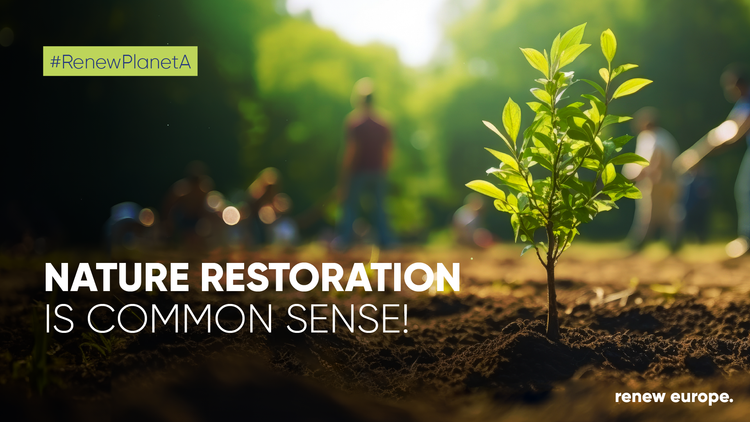
The Renew Europe Group welcomes the endorsement today in plenary of the agreement reached with the Council in November last year on the Nature Restoration law. With the adoption of this specific bill aimed at restoring damaged nature in Europe and, unique in its kind worldwide, a solid legal basis has now been created that makes it possible to restore damaged nature, reverse biodiversity loss on a large scale and therefore tackle the harmful impact of climate disruption on society, economy and businesses.
With 80% of EU habitats in a deplorable state, this Nature Restoration Law, which is another major pillar of the Green Deal, provides that Member States will need to put concrete measures in place with the aim to recover 20% of all land and sea areas by 2030, and all ecosystems in need of restoration by 2050. This agreement makes the EU the first region to translate its international commitments of the UN Kunming-Montreal agreement - ratified by 196 countries - into a binding legal framework, with clear restoration targets for Member States.
This law lays a solid basis for safeguarding the health of our ecosystems and our citizens, while putting Europe on the path to sustainable economic growth. Renew Europe also welcomes that the Nature Restoration Law foresees specific requirements for Member States to tackle the decline of pollinators by 2030 and will move towards planting 3 billion trees in the EU.
MEP Maria Soraya RODRIGUEZ RAMOS (Ciudadanos, Spain), Renew Europe shadow rapporteur says:
“This is a historical moment. For the first time, Member States will draft National Plans indicating how they will restore their degraded ecosystems. Restoring Europe's habitats and species is not only important for the value of nature itself, but also for improving human health and well-being and reducing the impact of climate change. We owe it to the thousands of scientists, industry, renewable energy companies, cities, and all of civil society who have been involved in its adoption. Today, we have adopted a law that stands for the health of our ecosystems, our citizens, and our economy.”